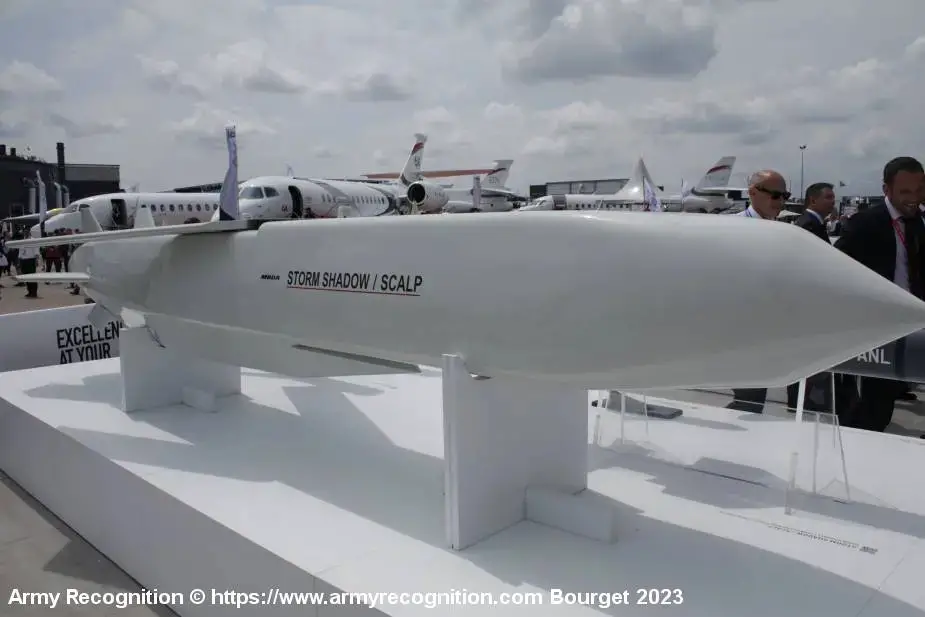Breaking news
UK to Increase Defense Spending to 2.5% of GDP by 2030.
On April 23, 2024, UK Prime Minister Rishi Sunak announced a strategic increase in defense spending to 2.5% of the country's Gross Domestic Product (GDP) by the end of the decade. Sunak highlighted this move as a response to escalating global threats and aims to place the UK's arms industry on high alert.
Follow Army Recognition on Google News at this link

New Storm Shadow air-launched cruise missiles are due to be delivered to Ukraine shortly, as part of a package of 1,600 weapons (Picture source: Army Recognition)
The Prime Minister's initiative outlines a gradual increase in the defense budget, projected to reach £87 billion annually by 2030. This increase follows persistent demands from Conservative MPs, including Defense Secretary Grant Shapps, advocating for heightened military expenditure to counter rising global risks.
In addition to bolstering defense spending, Sunak has pledged a minimum of £3 billion annually to Ukraine "for as long as necessary". This financial aid directly addresses a significant request from Ukrainian President Volodymyr Zelenskiy for more reliable support amidst Russian hostilities.
Amidst forthcoming general elections, the Prime Minister emphasized defense as a pivotal electoral issue, offering voters a clear choice on this matter. While the Labour Party has not committed to matching this pledge, Shadow Cabinet Minister Steve Reed indicated on Sky News that Labour aims to match these figures.
This announcement could potentially alleviate internal pressures Sunak faces within his party, as many Conservative MPs are concerned about their electoral prospects. The local elections could pose significant challenges for the Prime Minister.
Sunak described this military enhancement as "the most significant strengthening of our national defense in a generation," implying that the UK will allocate an additional £75 billion to its core defense funding over the next six years. During a speech in Warsaw with NATO Secretary General Jens Stoltenberg present, Sunak noted that Europe is at a crossroads and called for allies to meet the commitments set by the UK, soon to be NATO's second-largest contributor, following the United States.
The Prime Minister also declared a £10 billion investment in munitions manufacturing, noting the necessity for "deeper stockpiles" of arms, as evidenced by the ongoing conflict in Ukraine. However, he cautioned against overstating the threat level, clarifying that the UK is "not on the brink of war nor does it seek one." This plan marks a transition from an undefined future goal to a specific commitment to achieve 2.5% GDP spending by 2030. Currently, the UK spends 2.32% of its GDP on defense.
Additional funding will also support Western defenses against autocratic states like Russia, Iran, and China, which Sunak claims are collaborating to undermine democracies. This includes further commitments to reform defense procurement and the establishment of a new defense innovation agency, dedicating at least 5% of the defense budget to research and development.
The Prime Minister also welcomed the US Congress's approval of a $61 billion military aid package for Ukraine, stating that it underscores the necessity for European investment in security. He expressed pride in the UK's leadership in this area.
Sunak's itinerary includes a visit to Germany, where he will meet Chancellor Olaf Scholz, who recently confirmed Germany's commitment to meet NATO's 2% GDP defense spending target. Together, the UK and Germany will announce initiatives to co-develop remote-controlled howitzer artillery systems, a venture expected to create hundreds of jobs across both nations.
Defense News April 2024


























